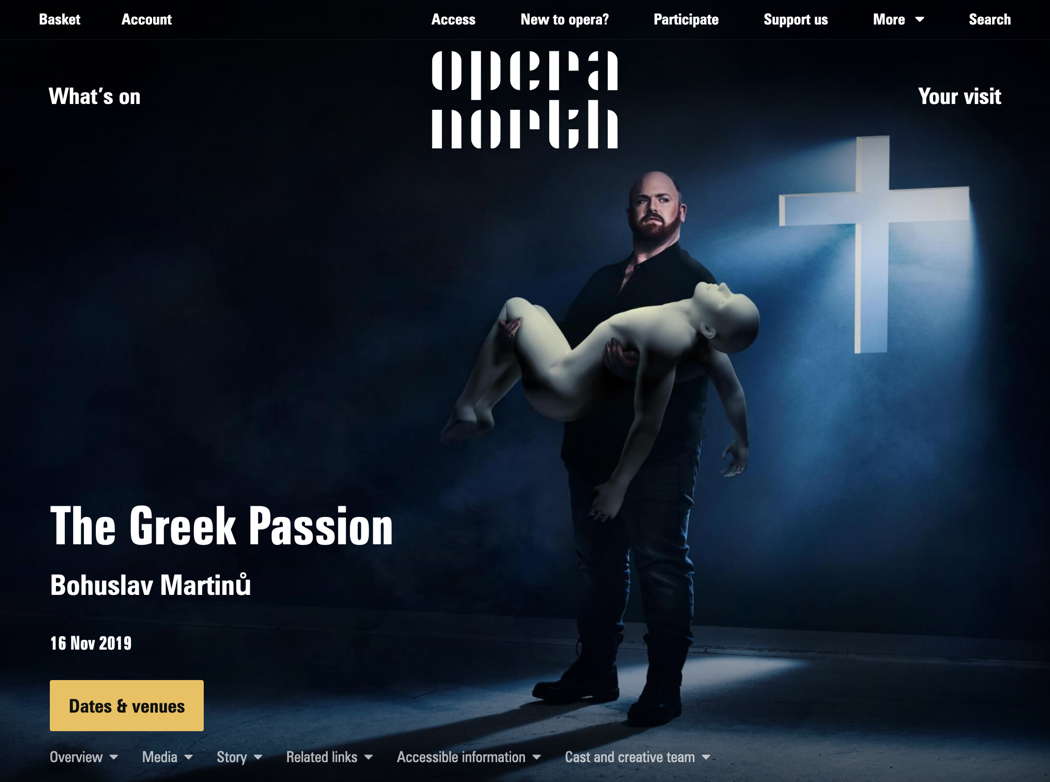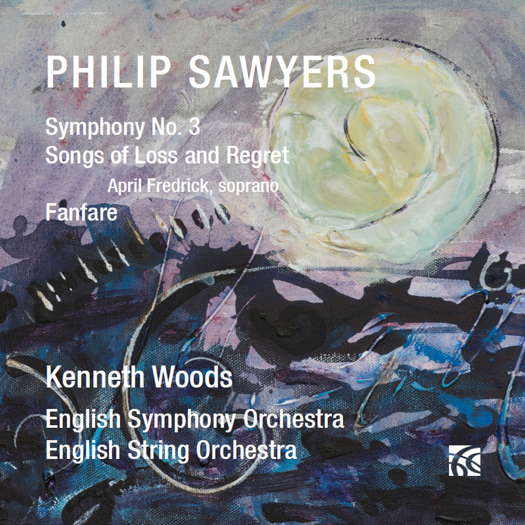- Lincoln Center
- Gunther Emmerlich
- Per Nørgård
- Countess of Harewood
- Afghan
- Ignaz Friedman
- Byzantium
- Society of Ecuadorian Authors and Composers
Contemporary Resonances
Opera North's production of Martinů's 'Greek Passion',
reviewed by MIKE WHEELER
The Greek Passion was Martinů's last opera, based on Nikos Katzanzakis' Christ Recrucified. It is set in a mountain village where preparations are under way for the annual Passion play. A group of refugees arrives, driven from their own village, dividing the host community into hostile and sympathetic camps, as the principal actors in the play begin to associate ever more closely with their roles, and the resulting social tensions become increasingly acute.
Intended originally for Covent Garden, who turned it down for reasons that don't seem entirely clear, it was revised for a production in Zurich, and this version was standard for many years. But the original has since been reconstructed by Aleš Březina, Director of the Bohuslav Martinů Institute, Prague, and that's what Opera North presented - Theatre Royal, Nottingham, UK, 9 November 2019.

Online publicity for Opera North's 'A Greek Passion'
The musical commitment of everyone involved was evident from the start. Conductor Garry Walker, Opera North's Music Director Designate, kept everything tightly focused, with the sharply-etched colours of Martinů's scoring coming across vividly, and the singers of the Opera North Chorus being their usual, strongly dependable selves.
Nicky Spence was a robust but troubled Manolios, the shepherd who takes on the Christ role in the play and becomes the leader of the faction supporting the refugees. Magdalena Molendowska's rich mezzo was exactly right for the young widow Katerina, the Mary Magdalene figure. Both brought considerable intensity to their scene together in Act 3. Jeffrey Lloyd-Roberts' Panait, down to play Judas, was a convincingly vulnerable bully. Stephen Gadd was a study in self-righteousness as Grigoris, the priest in the home village, who sees the refugees as a threat to the established order. The contrast with John Savournin's agonised Fotis, the refugee priest, trying to hold his community together, could not have been clearer.
The story's contemporary resonances are evident, and the abiding image of Charles Edwards' designs - the black-clothed refugees each carrying a white life-sized human effigy - is powerfully emblematic of compassion in the face of suffering. But Christopher Alden's direction seemed not to quite hit the right tone. It leaned too much towards the stylised, with rather a lot of slow, stately movement round the stage, where story like this arguably needs a more naturalistic style - closer to Pagliacci than Oedipus Rex, if you like.
Probably a weakness of the opera, rather than the production, was the build-up to the death of Manolios, either too long or not long enough, and I'm not sure which. It needed either to come as a sudden shock, much like Sesto's stabbing of Tolomeo in the companion staging of Handel's Giulio Cesare in the current Opera North season, or it needed more time to ratchet up the tension.
I now need to explore the revised version, and see a production that aims at greater realism. But Martinů's work is now increasingly getting the attention it deserves, and Opera North's take on the opera's original version, flawed though it was, can only have helped.
Copyright © 16 November 2019
Mike Wheeler,
Derby UK





